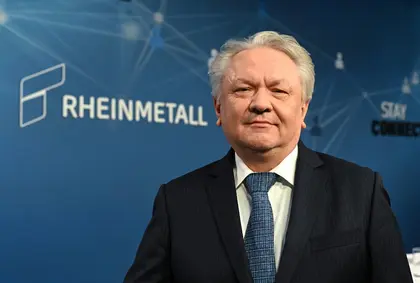Armin Papperger, CEO of Germany’s largest arms manufacturer Rheinmetall, has said that his country’s munitions production capability cannot match that of Ukraine’s current needs, which he places at two million shells a year.
Papperger said Germany is trying to ramp up production, but it would take “10 to 15 years” to replenish its own stockpiles.
JOIN US ON TELEGRAM
Follow our coverage of the war on the @Kyivpost_official.
“In general, we want to produce up to 700,000 artillery shells a year by 2025,” Papperger said, as reported by German news outlet Bild.
The statement came amidst the construction of a new Rheinmetall factory targeted to be completed next year, which would produce 200,000 shells annually, for both Ukrainian and German needs.
Papperger also noted the success and extent of drone usage in Ukraine, which could prompt Germany to expand its production to equip its own troops with combat drones.
Germany is the second-largest military donor to Ukraine after the US.
The increase in Germany's domestic arms production also indicates the overall reassessment of Europe’s defense policy should the US step back from its involvement in Europe’s security, as evidenced by the recent stalled Ukraine aid package and President-elect Donald Trump’s cold stance on NATO.
“We have to move away from manufacturing and towards large-scale production.” said German Chancellor Olaf Scholz, adding that Germany aimed to “equip the Bundeswehr independently and permanently.”

Russia Deploys Thermobaric UAVs – Capable of Inflicting Horrendous Injury
Germany is also one of the countries actively preparing for a potential confrontation with Russia, with German defense minister Boris Pistorius announcing in January that Russia could invade a NATO country in five to eight years.
Europe has been struggling to supply Ukraine with the one million shells it pledged in 2023, with EU High Representative Josep Borrell commenting that Europe would only be able to supply just over half of the one million artillery shells it promised to send by March this year.
You can also highlight the text and press Ctrl + Enter






